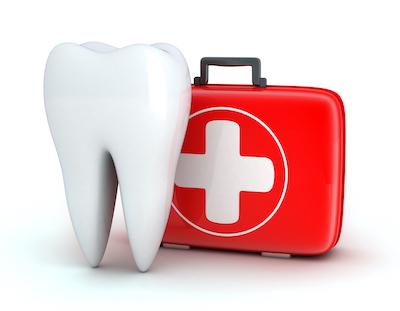
If you have a dental emergency, you can count on prompt and gentle treatment to ease pain and restore oral health.
However, the specific details of your emergency dental visit will vary based on the nature of your dental health issue.
Common Dental Emergencies
Tooth Infections
Tooth infections typically start in a tooth canal and can lead to excruciating pain and swelling. You may also notice a blister on the gum or tooth discoloration if you have a tooth canal infection. Note: you do not have to have every symptom to be diagnosed. We treat this type of infection with a root canal.
A root canal is a painless therapy because your emergency dentist in Birmingham, AL, numbs the area around your infected tooth. We remove the infection, irrigate the canal, and close it with a temporary filling material.
We typically cap the tooth with a dental crown to restore full function at a future dental visit.
Tooth Fractures
Tooth fractures may result from injury, bruxism (teeth grinding), or untreated decay. We can often save the tooth with a custom dental crown. However, if the tooth is beyond repair, your dentist may recommend extraction followed by tooth replacement.
Replacing missing teeth with a dental implant or other means is crucial to your long-term oral health.
Broken Restorations
We cement restorations to treated teeth, which means they are protecting the inner teeth from further damage or infections. When you damage a restoration, you must see the dentist as soon as possible for repair or replacement.
What to Expect at Your Emergency Dental Appointment
We will first assess your emergency and discuss all treatment solutions. Our compassionate team will also be with you throughout your appointment, offering comfort and reassurance.
Our dentist uses powerful local anesthesia to make your appointment stress-free. We can also explain your treatment step by step as we move along.
Emergency Dentist in Birmingham, AL
Call our dental office if you have a dental emergency or are unsure whether your situation can wait. A team member can assess your symptoms and provide guidance.
To lower your risks for dental emergencies, brush and floss your teeth at least twice daily and visit your dentist every six months.






